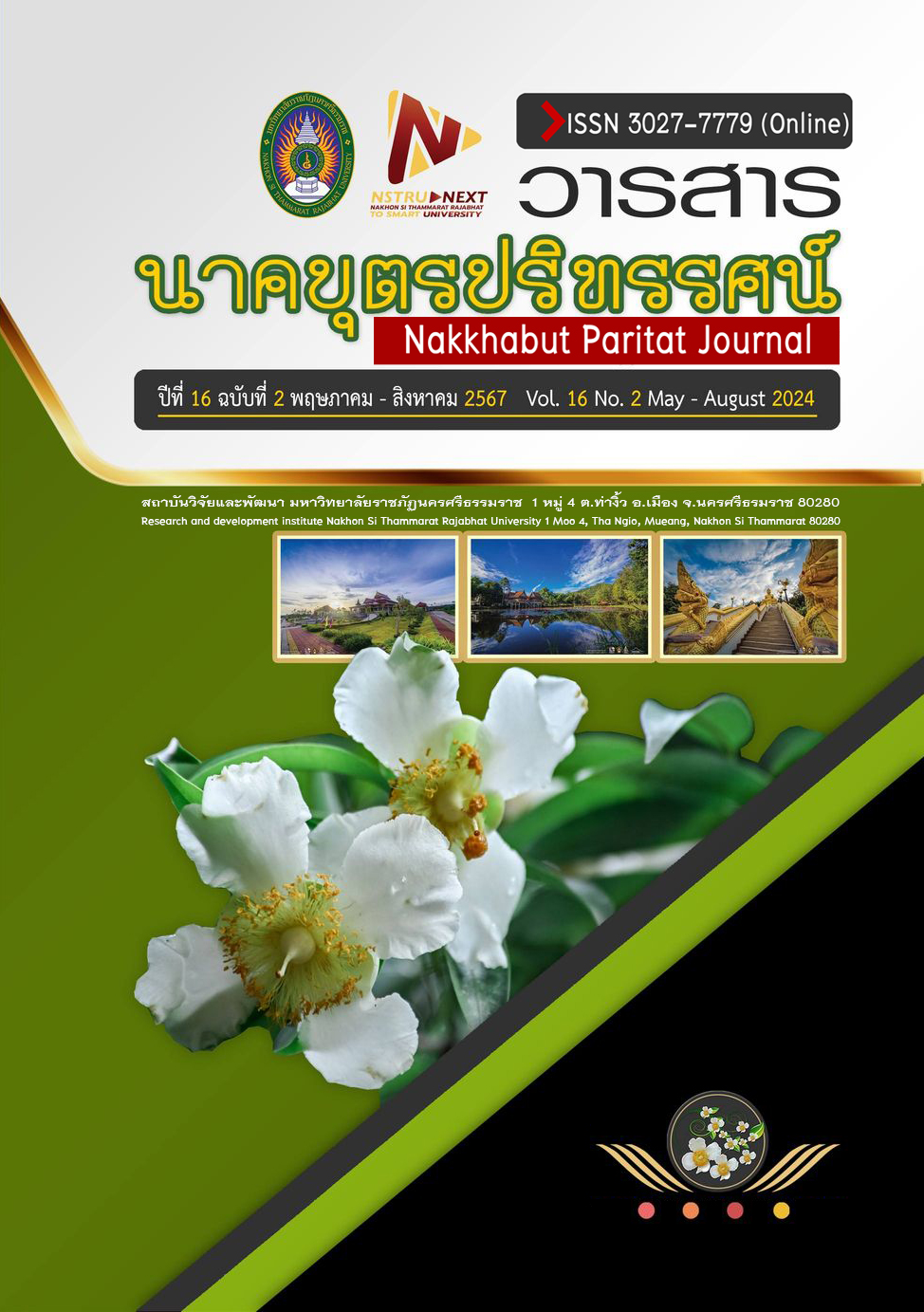กลยุทธ์การพัฒนาครูเพื่อรองรับยุทธศาสตร์ด้านการศึกษาของจังหวัดเชียงราย
Main Article Content
บทคัดย่อ
การวิจัย กลยุทธ์การพัฒนาครูเพื่อรองรับยุทธศาสตร์ด้านการศึกษาของจังหวัดเชียงราย เป็นการวิจัยแบบผสมผสาน มีวัตถุประสงค์เพื่อศึกษาสภาพปัจจุบัน ความต้องการจำเป็นนำไปสู่การกำหนด กลยุทธ์การพัฒนาพัฒนาครู และเพื่อประเมินความเหมาะสมของกลยุทธ์การพัฒนาครูเพื่อรองรับยุทธศาสตร์ด้านการศึกษาจังหวัดเชียงราย ประชากรที่ใช้ในการศึกษา คือ ผู้บริหารและครูจำนวน 82 คน จากโรงเรียนระดับมัธยมศึกษา จำนวน 41 โรงเรียน คณะกรรมการและคณะทำงานบริหารเชิงยุทธศาสตร์ศึกษาธิการจังหวัดเชียงราย จำนวน 12 คน และ 15 คน ตามลำดับ เครื่องมือคือแบบสอบถามในการศึกษาสภาพปัจจุบันและความต้องการจำเป็น ในส่วนของแบบประเมินความเหมาะสมใช้ในการวิเคราะห์ความเหมาะสมของกลยุทธ์ วิเคราะห์ข้อมูลโดย ร้อยละ ค่าเฉลี่ยและส่วนเบี่ยงเบนมาตรฐาน
ผลการวิจัยพบว่า ในสภาพปัจจุบันมีการพัฒนาการสอนแบบ Active Learning การบริหารจัดการโรงเรียนตามหลักการ Happy School การพัฒนาความเป็นเลิศทางวิชาการ มีความต้องการจำเป็นในการพัฒนาต่อยอด ด้านการสอนออนไลน์ การพัฒนาทักษะอาชีพ การพัฒนาทักษะด้านศิลปะ วัตถุประสงค์ข้อที่ 2 มี 10 กลยุทธ์ที่สำคัญ ประกอบด้วย 1) การสร้างองค์ความรู้ให้กับครู 2) การส่งเสริมผู้บริหาร 3) พัฒนาครูให้มีความรู้ด้านการสร้างหลักสูตร 4) ส่งเสริมการพัฒนาครูด้านศาสตร์พระราชาโดยระบบ online 5) นำภูมิปัญญามาพัฒนาครู 6) บูรณาการการทำงานระหว่างครู บุคลากรทางการศึกษากับท้องถิ่น 7) ส่งเสริมเครือข่ายการศึกษาอาชีพสู่ชุมชนและสถานศึกษา 8) ส่งเสริมให้ครูและบุคลากรทางด้านการวิจัย 9) เชื่อมโยงระบบนวัตกรรมการศึกษาโดยใช้เครือข่ายออนไลน์ และ 10) ผลักดันงบประมาณ ไวรัสโคโรนา 2019 เพื่อบูรณาการทรัพยากรการบริหารในสถานศึกษา อีกทั้งยังพบว่า กลยุทธ์ที่มีความเหมาะสม สูงสุดคือ สร้างองค์ความรู้ให้กับครูตามหลักการ Happy school รองลงมาคือ พัฒนาครูให้มีความรู้
เพื่อพัฒนาผู้เรียนแบบ Active learning ส่งเสริมการจัดการเรียนรู้ระบบการศึกษาแบบออนไลน์ให้กับครูและบุคลากรทางการศึกษา และสุดท้ายคือ การพัฒนาเพื่อให้มีองค์ความรู้ด้านการวิจัย
Article Details

อนุญาตภายใต้เงื่อนไข Creative Commons Attribution-NonCommercial-NoDerivatives 4.0 International License.
เอกสารอ้างอิง
Boonlert, P. (2015). The role of thai provincial governor in change management. Veridian E-Journal, Silpakorn University, 8(1), 1287-1309. (in Thai)
Dongjit, J. (2021). The application of e-learning on learning managment Phenomenon-based learning approach. Journal of Education Burapha University, 32(3), 1-10. (in Thai)
Hitt, M.A. Hoskisson, R.E., & Ireland, R.D. (2007). Management of strategfy: Concep and cases.Mason. OH: Thomson Souht-Western.
Hunter, J.D., & Wheelen,T.L.(2006). Strategy management and business Policy: Concep & Cases
(10th ed.). Upper Saddle River. NJ: Prentice-Hall.
Katsioloudes, M.I. (2006). Strategy management : Global culture Perspective for profile & non- Profile Organization. Burlington, Ma: Elsevier.
Kanghun, J., Maungchinda, N. & Nilkote, R .(2023). Happy School Model: Participatory School Contextual Waste The Case Study of Thairathwitthaya 108 (bansamnakthong) School. Journal of Scholar Community, 1(6), 32-49. (in Thai)
Khruea Chak, K. (2020). Sustainable Development Goals. Management mission news. Office Education of Chiang Rai Province. Retrieved 2022, January 2, from http://www.cri.moe.go.th/showalbum.php?aid=261. (in Thai)
Noinuay, P (2021). A Study of Essential Needs Development on a Thai Literature Learning Management Model Based on the Concept of Upper Secondary Students’ Active Learning. HRD Journal, 12(1), 78-91. (in Thai)
Order of the Head of the National Council for Peace and Orde. (2016). Order of the Head of
the National Council for Peace and Order on Driving Educational Reform of the Ministry of Education in the Regions, Royal Gazette,133, Special Section 68,1-5. (in Thai)
________. (2016). Order of the Head of the National Council for Peace and Order on the administration of the Ministry of Education in the region, Royal Gazette,133, Special Section 68.6-8. (in Thai)
Pemasilo, P. (2021). Online Learning in Higher Education Under COVID-19 Pandemic. Journal of Modern Learning Development, 6(6), 357-370. (in Thai)
Saenthong, N. (2008). Strategy Performance.Management. Bangkok: Se-Education Co., Ltd. (in Thai)
Sanjaiprom, S. (2021). The Development of Teacher’s Research Ability with Using Local Wisdomto Promote Analytical Thinking. Rajabhat chiang mai research journal, 22(1), 133-148. (in Thai)
Tavisuvan, N. (2020). Happy workplace in ban khaoangkaew school. Journal of Educational Administration Sinlapakon, 11(1), 153-164. (in Thai)
Thun Sin La Rat, P. (2014). 7 Strategy development of school administrators and teachers for educational quality. Suratthani Rajabhat Journal, 1(1), 1-28. (in Thai)
Utoomporn, N. (2019). Community Participation in Application of Local Wisdom for Educational Management of Schools in Phra Pradaeng District, Samut Prakran Province. Sripatum Review of Humanities and Social Sciences, 19(1), 110-121. (in Thai)
Wechayaluck, N,. Seesomba,S & Kongkhan,T. (2021).The Supervision Competency Development
of Supervisors and Mentor Teachers Based on CCR Model Supported by Professional Learning Community (PLC) System. Social Sciences Research and Academic Journal, 16(2), 29-44. (in Thai)
Wiwanthamongkhon, P. (2021). Development Of Active Learning Active Using Historical Learing
Resources in Phra Nakhon si Ayutthaya Province for Student Teachers. Journal of MCU Social Science Review, 10(2), 198-210. (in Thai)


